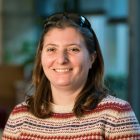Adam Belay will join the Department of Electrical Engineering and Computer Science as an assistant professor in July 2017. He holds a PhD in computer science from Stanford University, where he was a member of the secure computer systems group and the multiscale architecture and systems team. Previously, he worked on storage virtualization at VMware Inc. and contributed substantial power-management code to the Linux Kernel project. Belay’s research area is operating systems and networking. Much of his work has focused on restructuring computer systems so that developers can more easily reach the full performance potential of hardware. He received a Stanford graduate fellowship, a VMware graduate fellowship, and an OSDI Jay Lepreau best paper award.
https://engineering.mit.edu/wp-content/uploads/blank-profile-picture-330x330.png
Website
Adam Belay
Electrical Engineering and Computer Science #Matteo Bucci will join the Department of Nuclear Science and Engineering (NSE) faculty as an assistant professor in the fall of 2016. He received his PhD in nuclear engineering from the University of Pisa in Italy in 2009. A research scientist in NSE since 2015, Bucci was previously at Commissariat à l’énergie atomique in France, where he led several research projects in experimental and computational thermal-hydraulics for light water reactors and sodium fast reactors. His research will focus in two main areas: heat transfer nanoengineering innovations to improve the safety and economic competitiveness of nuclear reactors, and advanced diagnostics and intelligent systems to improve situational awareness, fault detection and diagnostics, and anticipated failures in nuclear power plants. Bucci is an active member of the Consortium for Advanced Nuclear Energy Systems, one of the MIT’s eight Low-Carbon Energy Centers.
https://engineering.mit.edu/wp-content/uploads/bucci.jpg
Website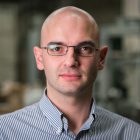
Matteo Bucci
Nuclear Science and Engineering #Luca Carlone joins the Department of Aeronautics and Astronautics as the Charles Stark Draper Assistant Professor this month. He will also be a principal investigator in the Laboratory for Information and Decision Systems (LIDS). Carlone received his PhD from the Polytechnic University of Turin in 2012, with a thesis entitled “Nonlinear Estimation Techniques for Autonomous Navigation in Single and Multi-robot Systems.” A research scientist at LIDS since 2016, Carlone first came to MIT as a postdoc in 2015, after two years as a postdoc at Georgia Tech. Carlone’s research interests include nonlinear estimation, numerical and distributed optimization, and probabilistic inference applied to sensing, perception, and decision making in single and multirobot systems. He is the recipient of several best-paper awards in his field.
https://engineering.mit.edu/wp-content/uploads/Luca_Carlone_36-330x330.gif
Website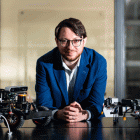
Luca Carlone
Aeronautics and Astronautics https://engineering.mit.edu/faculty/luca-carlone/Tal Cohen will join the Department of Civil and Environmental Engineering as an assistant professor in November 2016. After she received her PhD in aerospace engineering in 2013 from Technion University in Israel, she came to MIT for a two-year postdoctoral position in the Department of Mechanical Engineering. She is currently a postdoc at the School of Engineering and Applied Sciences at Harvard University. Cohen works in mechanics, especially the mechanics of structures subjected to extreme loading conditions and shock wave propagation. Her work on the mechanics of stretchable materials that can undergo extreme deformations up to loss of stability, and on the mechanics of growth in both biology and engineering, exploits analogies with related fields. By employing complex nonlinear material models, Cohen’s research group will focus on deriving theoretical models that can significantly affect our understanding of observed phenomena but are still simple enough to be applied in design or characterization of materials.
https://engineering.mit.edu/wp-content/uploads/Tal_Cohen_3-330x330.jpg
Website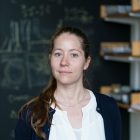
Tal Cohen
Civil and Environmental Engineering #David Des Marais joined the Department of Civil and Environmental Engineering as an assistant professor in October. He received his BA in integrative biology from the University of California at Berkeley, in 2000, studying plant diversity and evolution, and a PhD in biology from Duke University. His dissertation addressed how multifunctional proteins evolve within and between species. Des Marais did postdoctoral research at the University of Texas at Austin, where he was awarded a fellowship from the U.S. Department of Agriculture’s National Institute of Food and Agriculture to investigate plant responses to multiple environmental stresses experienced concurrently. Most recently, he was a principal investigator in the Department of Organismic and Evolutionary Biology at Harvard, as well as a senior fellow at the Arnold Arboretum. Des Marais’ research interests are in plant ecophysiology, evolutionary biology, and functional genomics. He is particularly interested in plant interactions with the abiotic environment — water, temperature, nutrients, and light — and how plants respond when these factors impose stress. He studies natural diversity within and between plant species both in the field and in controlled environments, and he hopes to develop a mechanistic understanding or plant performance to conserve natural plant populations and to improve agricultural productivity and sustainability.
https://engineering.mit.edu/wp-content/uploads/David_Des_Marais-330x330.gif
Website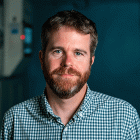
David Des Marais
Civil and Environmental Engineering https://engineering.mit.edu/faculty/david-des-marais/Zachary Hartwig will join the Department of Nuclear Science and Engineering in January 2017 as an assistant professor. He will also receive a co-appointment at the MIT Plasma Science and Fusion Center (PSFC). He received his PhD from MIT in 2014 for the development of a novel accelerator-based technique that advanced the ability to study the dynamic interaction of confined plasmas and the surrounding solid materials — known as plasma-material interactions — in fusion devices. Since 2014, he has been a postdoc at the PSFC, continuing to develop diagnostic techniques for plasma-material interactions, leading the establishment of a new laboratory for accelerator-based nuclear science, and leading the design of high-magnetic field net energy gain fusion devices that leverage new superconducting magnet technology. Hartwig’s research will focus on the development and application of particle accelerators, radiation detectors, and computational radiation transport simulations to magnetic fusion energy, nuclear security, and radiation damage in nuclear materials. He presently holds a U.S. Department of Energy ORISE Fellowship in the fusion energy sciences and is the recipient of the Del Favero doctoral thesis prize.
https://engineering.mit.edu/wp-content/uploads/hartwig.jpg
Website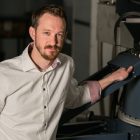
Zachary Hartwig
Nuclear Science and Engineering #Ali Jadbabaie joined the MIT faculty as a full professor with dual appointments in the Department of Civil and Environmental Engineering and the Institute for Data, Systems, and Society in July 2016. He is currently the JR East Professor of Engineering, the director of the Sociotechnical Systems Research Center, and the associate director of the Institute for Data, Systems, and Society at MIT. He is also a principal investigator in the Laboratory for Information and Decision Systems. Jadbabaie received his BS from Sharif University of Technology in Tehran, Iran, his MS in electrical and computer engineering from the University of New Mexico, and his PhD in control and dynamical systems from Caltech. After a year as a postdoc at Yale University, he joined the faculty at University of Pennsylvania in July 2002. At Penn he was named an associate professor with tenure in 2008, a full professor in 2011, and the Alfred Fitler Moore Professor of Network Science in 2013. He also held appointments in computer and information science and operations as well as information and decisions in the Wharton School of Business. Jadbabaie is the inaugural editor-in-chief of IEEE Transactions on Network Science and Engineering, an interdisciplinary journal sponsored by several IEEE societies. He is a recipient of a National Science Foundation Career Award, an Office of Naval Research Young Investigator Award. In 2015, he received the Vannevar Bush Fellowship (formerly known as National Security Science and an Engineering Faculty Fellowship) from the office of Secretary of Defense. Jadbabaie’s students have won and been finalists of numerous best paper awards at various ACC and CDC conferences. He is also an IEEE fellow. He has made foundational contributions to the field of collective autonomy and opinion dynamics, and his current research interests include the interplay of dynamic systems and networks with specific emphasis on multi-agent coordination and control, distributed optimization, network science, and network economics.
https://engineering.mit.edu/wp-content/uploads/jadbabaie.jpg
Website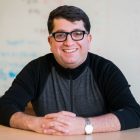
Ali Jadbabaie
Civil and Environmental Engineering #Karthish Manthiram will join the faculty as an assistant professor in Chemical Engineering in 2017. Currently a postdoctoral researcher at Caltech, he received a bachelor’s degree in chemical engineering from Stanford University and his PhD in chemical engineering from the University of California, Berkeley. He received the Dan Cubicciotti Award of the Electrochemical Society, a Department of Energy Office of Science graduate fellowship, a Tau Beta Pi fellowship, the Mason and Marsden prize, a Dow Excellence in Teaching Award, and the UC Berkeley chemical engineering departmental teaching award. As a graduate student, Manthiram developed transition-metal oxide hosts for redox-tunable plasmons and nanoparticle electrocatalysts for reducing carbon dioxide. His research program at MIT will focus on the molecular engineering of electrocatalysts for the synthesis of organic molecules, including pharmaceuticals, fuels, and commodity chemicals, using renewable feedstocks.
https://engineering.mit.edu/wp-content/uploads/2016/12/headshot_manthiram-330x330.jpg
Website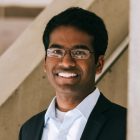
Karthish Manthiram
Chemical Engineering #Stefanie Mueller will join the Department of Electrical Engineering and Computer Science as an assistant professor in January 2017. She received her PhD in human-computer interaction (HCI) from the Hasso Plattner Institute in 2016, where she also received an MS in IT-systems engineering. In her research, Mueller develops novel interactive hardware and software systems that advance personal fabrication technologies. Her work has been published at the most selective HCI venues — Association for Computing Machinery (ACM), the Conference for Human Factors in Computing Systems (CHI), and User Interface Software and Technology (UIST) — and received a best paper award and two best-paper nominees. Mueller is an associate chair of the program committees at ACM, CHI, and UIST, and is a general co-chair for the ACM SIGGRAPH Symposium on Computational Fabrication that will take place at MIT in June 2017. She has been an invited speaker at MIT, Stanford, the University of California at Berkeley, Harvard, Carnegie Mellon University, Cornell University, Microsoft Research, Disney Research, Adobe Research, and others. In addition, her work has been covered widely in New Scientist, BBC, The Atlantic, and The Guardian. Mueller will head the HCI engineering group at MIT’s Computer Science and Artificial Intelligence Laboratory, which works at the intersection of human-computer interaction, computer graphics, computer vision, and robotics.
https://engineering.mit.edu/wp-content/uploads/KayH20160906-_B1A9193-330x330.jpg
Website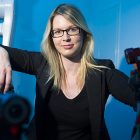
Stefanie Mueller
Electrical Engineering and Computer Science #Ellen Roche will join the Department of Mechanical Engineering faculty in summer 2016, following postdoctoral training at the University of Galway; she will also be a core member of the Institute for Medical Engineering and Science. She received her BE in biomedical engineering from the National University of Ireland in Galway, and her MS in bioengineering from Trinity College in Dublin. Between these degrees, she spent five years working on medical device design for Mednova Ltd., Abbot Vascular, and Medtronic. She later received her PhD in bioengineering from Harvard University. Roche’s awards include the American Heart Association Pre-doctoral fellowship, a Fulbright international science and technology award, the Harvard Pierce fellowship for outstanding graduates, the Medtronic AVE Award, and the Ryan Hanley Award. She specializes in the design of cardiac medical devices. At Harvard, she performed research on the design, modeling, experimentation, and pre-clinical evaluation of a novel soft-robotic device that helps patients with heart failure. Her invention, the Harvard Ventricular Assist Device (HarVAD), is a soft-robotic sleeve device that goes around the heart, squeezing and twisting it to maintain the heart’s functionality. The device has no contact with blood, dramatically reducing the risks of infection or blood clotting as compared to current devices. Additionally, she worked on incorporation of biomaterials into the device to deliver regenerative therapy directly to the heart. Roche’s device, which has been validated in testing with animals, could restore normal heart function in heart failure patients.
https://engineering.mit.edu/wp-content/uploads/Ellen_Roche_8-1-330x330.jpg
Website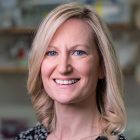
Ellen Roche
Mechanical Engineering https://engineering.mit.edu/faculty/ellen-roche/Jennifer Rupp will join the Department of Materials Science and Engineering as an assistant professor in January 2017. She studied at the University of Vienna before receiving a PhD in Materials at ETH Zurich. Rupp is a French and German native and is currently an assistant professor of electrochemical materials at ETH Zurich in Switzerland. She was a researcher at the National Institute of Materials Science in Tsukuba, Japan, in 2011, and previously collaborated with MIT professors Tuller and Yildiz. Her research is primarily in solid-state information memory systems, energy storage, and energy harvesting devices. She has worked on new material architectures and ionic transport-structure relations for solid-state ionic conductor thin films, electrochemistry and system aspects for memristors, solid-state batteries, solar-to-fuel conversion, and micro-fuel cells. Rupp’s awards include “top 40 scientist speaker under the age of 40” at the World Economic Forum, Spark Award for most innovative and economic invention by ETH Zurich, and Kepler Award for New Energy Materials by the European Academy of Science.
https://engineering.mit.edu/wp-content/uploads/Jennifer_Rupp_9-330x330.gif
Website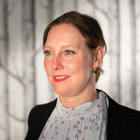
Jennifer Rupp
Materials Science and Engineering #Koroush Shirvan joined the Department of Nuclear Science and Engineering faculty as an assistant professor in the fall of 2017. He received his PhD in nuclear engineering from MIT in 2012, where he was also a principal research scientist at the Center for Advanced Nuclear Energy Systems. Shirvan specializes in the development and analysis of innovative nuclear reactor technology. He has led projects involving more than 30 organizations, including national laboratories, universities, and private companies. He is the executive director of the accident tolerant fuel integrated research project, focused on developing the next generation of fuels aimed at improving the severe accident response of nuclear power plants. He is also the co-director of a nuclear reactor technology course for electric utility executives held during summers at MIT. His research will focus on acceleration of nuclear technology innovation by combining multiphysics simulations and informed experimentation in the highly regulated nuclear energy sector.
https://engineering.mit.edu/wp-content/uploads/Koroush_Shirvan_6.gif
Website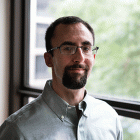
Koroush Shirvan
Nuclear Science and Engineering https://engineering.mit.edu/faculty/koroush-shirvan/Max Shulaker joined the Department of Electrical Engineering and Computer Science as an assistant professor in July. He received his BS, master’s, and PhD in electrical engineering at Stanford, where he was a Fannie and John Hertz Fellow and a Stanford Graduate Fellow. Shulaker’s research focuses on the broad area of nanosystems. His Novel Electronic Systems Group aims to understand and optimize multidisciplinary interactions across the entire computing stack — from low-level synthesis of nanomaterials, to fabrication processes and circuit design for emerging nanotechnologies, up to new architectures — to enable the next generation of high performance and energy-efficient computing systems.
https://engineering.mit.edu/wp-content/uploads/blank-profile-picture-330x330.png
Website
Max Shulaker
Electrical Engineering and Computer Science #Julian Shun joined the Department of Electrical Engineering and Computer Science as an assistant professor in September. He received a bachelor’s degree in computer science from the University of California at Berkeley, and a PhD in computer science from Carnegie Mellon University (CMU). Before coming to MIT, he was a postdoctoral Miller Research Fellow at UC Berkeley. Shun’s research focuses on the theory and practice of parallel algorithms and programming. He is particularly interested in designing algorithms and frameworks for large-scale graph analytics. He is also interested in parallel algorithms for text analytics, concurrent data structures, and methods for deterministic parallelism. Shun received the ACM doctoral dissertation award, the CMU School of Computer Science doctoral dissertation award, a Facebook graduate fellowship, and a best-student-paper award at the Data Compression Conference.
https://engineering.mit.edu/wp-content/uploads/Julian_Shun-330x330.gif
Website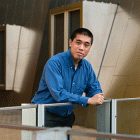
Julian Shun
Electrical Engineering and Computer Science https://engineering.mit.edu/faculty/julian-shun/Zachary P. Smith will join the Department of Chemical Engineering as an assistant professor in January, 2017. Smith earned his bachelor’s degree in chemical engineering from Pennsylvania State’s Schreyer Honors College, and completed his PhD in chemical engineering at the University of Texas at Austin, where he worked under the guidance of Benny Freeman and Don Paul. While at UT Austin, Smith developed structure/property relationships for gas diffusion and sorption in polymer membranes. His postdoctoral training with Jeffrey Long at the UC Berkeley examined the design of coordination solid (i.e. metal-organic frameworks) for selective adsorption based separations. His research focuses on the molecular-level design, synthesis, and characterization of polymers and inorganic materials for applications in membrane and adsorption-based separations. These efforts are promising for gas-phase separations critical to the energy industry and to the environment, such as the purification of olefins and the capture of CO2 from flue stacks at coal-fired power plants. Smith has co-authored over 20 peer-reviewed papers and been recognized with several awards, including the DoE Office of Science Graduate Fellowship. He was also selected as a U.S. delegate to the Lindau Nobel Laureate meeting on Chemistry in 2013.
https://engineering.mit.edu/wp-content/uploads/170216_MIT_ABO_ZACHARYSMITH_018-330x330.jpg
Website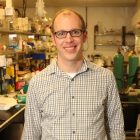
Zachary P. Smith
Chemical Engineering #David Sontag will join the Institute for Medical Engineering and Science and the Department of Electrical Engineering and Computer Science in January 2017 as an assistant professor. He earned his bachelor’s degree in computer science at UC Berkeley and his PhD in computer science at MIT, where he worked in Professor Tommi Jaakola’s group on approximate inference and learning in probabilistic models. Sontag is currently an assistant professor of computer science and data science at New York University. Previously, he was a postdoc at Microsoft Research New England. At MIT, his research will focus on machine learning and probabilistic inference, with a particular focus on applications to clinical medicine. He is currently developing algorithms to learn probabilistic models for medical diagnosis directly from unstructured clinical data, automatically discovering and predicting latent (hidden) variables.
https://engineering.mit.edu/wp-content/uploads/David_Sontag_6-330x330.jpg
Website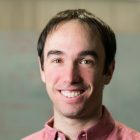
David Sontag
Electrical Engineering and Computer Science #Wim van Rees joined the Department of Mechanical Engineering as an assistant professor this fall. He received a BS in marine technology in 2006 and an MS with honors in ship hydrodynamics in 2008 from the Delft University of Technology. In 2014, he earned a PhD in computational science and engineering. He joined Harvard as a postdoc in 2014. Van Rees’ work couples the most advanced computational fluid dynamics and structural mechanics available with modern machine learning to design ocean propulsion and energy harvesting systems by evolutionary optimization. His combined background in naval architecture, including design of an America’s Cup vessel, and advanced computational fluid dynamics is unique. The systems that van Rees develops are inspired by nature, but outperform similar biological systems through simulated evolutionary processes that are able to mitigate some disadvantageous constraints of biological evolution. His work has the possibility of transforming ocean utilization around the world through unconventional approaches to transportation and offshore structure design, including extraction of energy from wind, wave, and turbulence, and marine robotics. The advanced computational tools that van Rees has developed, along with the directions of his research, may also enable him to one day unravel the mysteries of turbulence by developing reliable predictive tools.
https://engineering.mit.edu/wp-content/uploads/Wim-Rees-330x330.gif
Website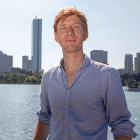
Wim van Rees
Mechanical Engineering https://engineering.mit.edu/faculty/wim-van-rees/Ryan Williams will join MIT as an associate professor (with tenure) in the Department of Electrical Engineering and Computer Science in January 2017, pending the approval of his tenure case by the Executive Committee. He received an BA in computer science and mathematics from Cornell, and a PhD in computer science from Carnegie Mellon. Following postdoctoral appointments at the Institute for Advanced Study (Princeton) and IBM Almaden, he was an assistant professor of computer science at Stanford for five years. Williams’s research interests are in the theoretical design and analysis of efficient algorithms and in computational complexity theory, focusing mainly on new connections (and consequences) forged between algorithm design and logical circuit complexity. Along with some best paper awards, Williams has received a Sloan Fellowship, an NSF CAREER Award, a Microsoft Research Faculty Fellowship, and was an invited speaker at the 2014 International Congress of Mathematicians.
https://engineering.mit.edu/wp-content/uploads/Ryan_Williams_3-330x330.jpg
Website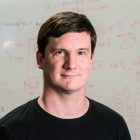
Ryan Williams
Electrical Engineering and Computer Science #Virginia Vassilevska Williams will join the department of Electrical Engineering and Computer Science as an associate professor in January 2017, pending the approval of her case by Academic Council. She received a BS in mathematics and engineering and applied science from Caltech and a PhD in computer science from Carnegie Mellon. She was a postdoctoral fellow at the Institute for Advanced Study (Princeton), UC Berkeley, and Stanford. Prior to joining MIT, she spent three and a half years as an assistant professor at Stanford. Her research interests are broadly in theoretical computer science, focusing on the design and analysis of algorithms and fine-grained complexity. Her work on matrix multiplication algorithms was covered by the press and is the most cited paper in algorithms and complexity in the last five years.
https://engineering.mit.edu/wp-content/uploads/Virginia_Williams_10-scaled-330x330.jpg
Website